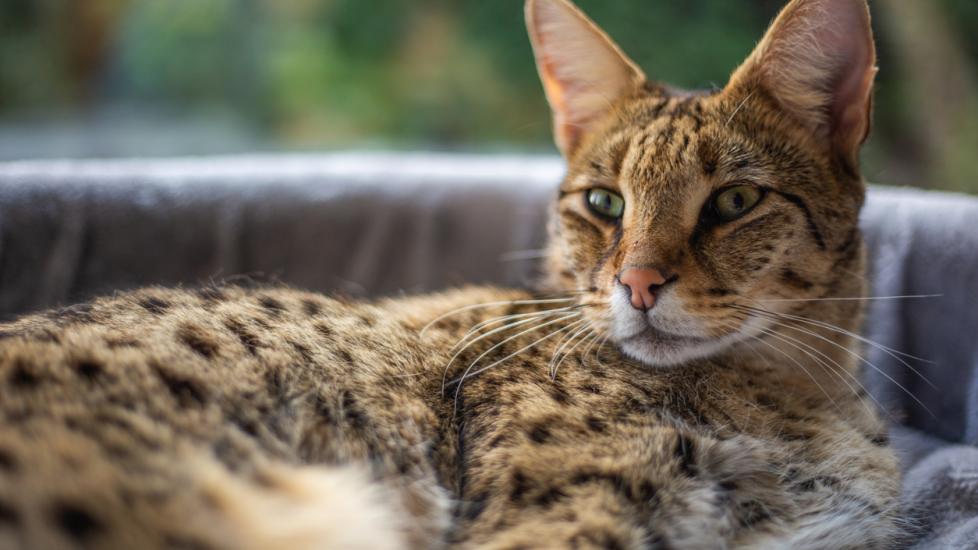Breed Introduction: The Savannah is a relatively new hybrid breed that combines an African Serval with a domestic cat. This crossbreeding results in a tall, slender feline with many unique characteristics. Known for their large ears, long legs, and spotted coats, Savannah cats are highly active and require plenty of stimulation and space due to their wild ancestry. They are often compared to dogs in terms of intelligence and can be trained to walk on leashes or even perform tricks. These cats typically have outgoing personalities and enjoy interacting with their human companions. However, it’s important to note that they may not always get along well with other pets without proper socialization.
Lifespan: 12-20 years
Coat Length: Short to medium-length hair
Alias(es): –
Height (adult): Typically between 8 to 15 inches at the shoulder
Place of Origin: United States
Body Size: Medium to Large; known for being lean and muscular
Shedding Level: Moderate shedders
Trainability: Highly intelligent and capable of learning commands and tasks quickly. They respond well to positive reinforcement training methods such as clicker training. Socialization from an early age is crucial for them to adjust well to different environments and people.
Special Considerations/Care: Savannahs need lots of playtime and exercise to keep them mentally stimulated and physically fit. Their high energy levels mean they should have access to toys and climbing structures to climb up and down. A spacious outdoor enclosure might also be necessary if you want to let your Savannah outside under supervision. Grooming requirements include regular brushing to reduce shedding and maintain a healthy coat. Due to their wild heritage, some Savannahs may exhibit behaviors like scratching furniture or hunting smaller animals, so careful monitoring and redirecting these instincts toward appropriate outlets is essential.
Legal Issues: It’s worth noting that regulations regarding ownership of Savannah cats vary by country and sometimes within states or provinces. Some areas may restrict certain generations or sizes of Savannah cats based on how close they are to their serval ancestor. Always check local laws before acquiring one.
Health Concerns: Hybrid vigor means that first-generation Savannahs tend to be healthier than later generations, but they can still inherit health issues from both parent breeds. Ongoing genetic testing is recommended to identify any potential problems early on. Common health concerns include hypertrophic cardiomyopathy (HCM), which is common among many purebred cats, polycystic kidney disease (PKD), and spinal muscular atrophy (SMA). Regular veterinary checkups are critical for early detection and treatment of any health issues.
